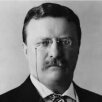SEB: economic decline in Russia and Ukraine will continue
Publicity photo.
At the same time, countries of the Baltic region and Central Europe will continue experiencing moderate economic growth sustained by internal demand. The most rapid economic growth is expected in Poland and Czech Republic. It is also expected that the Russian-Ukrainian conflict and its influence over economic relations in the region will be prolonged. Experts of the bank believe the summit of the European Union, which is set to take place in January 2015, will result in the decision to extend sanctions against Russia. Nevertheless, it is also possible that sanctions may be softened. USA will likely extend sanctions for the entirety of 2016. As a result, Russia, which has responded to the decisions by USA and the EU to impose sanctions, has also imposed import restrictions. SEB Bank experts believe Russia will only lose from that. Baltic States feel the impact of recession in Russia and its food embargo the most. This is because Baltic States have tight trade relations with the Russian Federation. Conditions beneficial for internal consumption growth is exactly what helps Baltic States and countries of Central Europe compensate the effect of the Russian-Ukrainian conflict and recession in both countries. Rising costs, levels of employment and low interest rates help maintain stable consumption growth. Moderate export growth will gradually become stronger, largely because of the rise of demand in Germany, which is very important for Central Europe and Nordic countries. Inflation rates in the Eastern European region will be varied. High inflation is expected in Russia and Ukraine. Inflation has reached its highest point in recent months. Now it is expected to decline. Inflation remains low in countries of Eastern Europe. Inflation growth will be slow, mostly because of the rise of wages. Low cost of raw materials remains a strong precaution factor. According to SEB Bank exports, the highest GDP growth is expected in Latvia – 2.7% in 2015 and 3.5% in 2017. Growth will be mostly tied to consumption. EU fund accessibility will raise activity in the sphere of investments. Export diversification will continue, so no rapid export volume growth is expected. In Estonia, GDP growth outlook has been reduced slightly because of weak export. Growth will return thanks to a rise in consumption and rising demand in Sweden. In 2016, Estonia’s GDP is expected to grow 2.7% in 2016 and 3.4% in 2017. In Lithuania, GDP growth will remain slow. This is because of the situation in Russia and low oil prices. Growth will speed up to 3% in the next two years. Poland’s economy is expected to grow in a stable way: 3.6% in 2016 and 3.8% in 2017. Following autumn elections, Poland is expected to change governments. However, this process will not have a major impact on development of the country’s economy. Russia’s GDP continues to decline. Nevertheless, GDP decline rates are expected to slow down: from 4% in 2015 to 1% in 2016. Low oil prices, sanctions and structural problems hinder economic recovery. Without serious reforms that could potentially improve the business environment and reduce dependence on oil exports, Russia’s economic growth will be very weak in the future. Ukraine is expected to suffer a 12% decline in GDP this year. Slow recovery is expected to follow in the future. The recently signed agreement on the write-off of debts to private creditors and IMF’s programme will help stabilize the situation. BNN
26-10-2015
Comments
|
Entertaiment & Arts
Latvian choir rescues BBC's War and Peace soundtrackLSM - Latvian Television is about to start broadcasting the miniseries "War and Peace" by the British Broadcasting Corporation (BBC), partially filmed in Latvia. Now news have surfaced about the series' soundtrack, which it turns out was rescued by the choir "Latvia" at the very last moment, reported Latvian Radio. |

Daily magazine about Latvia latviannews.lv
Theodore Roosevelt
 pribaltika.com
pribaltika.com
Russian version

